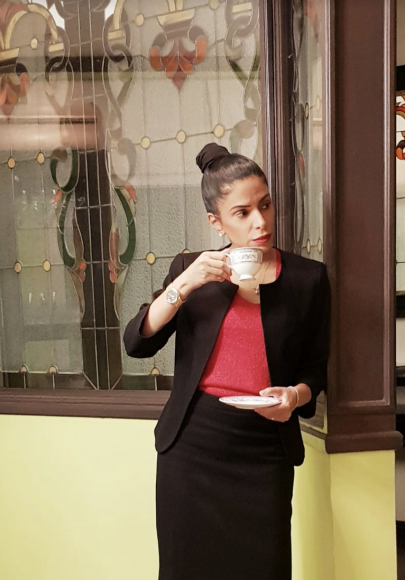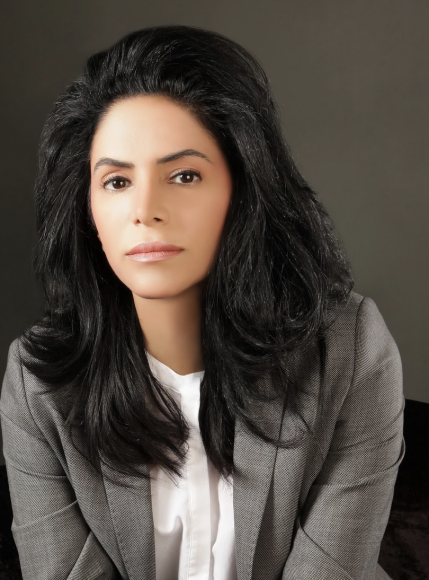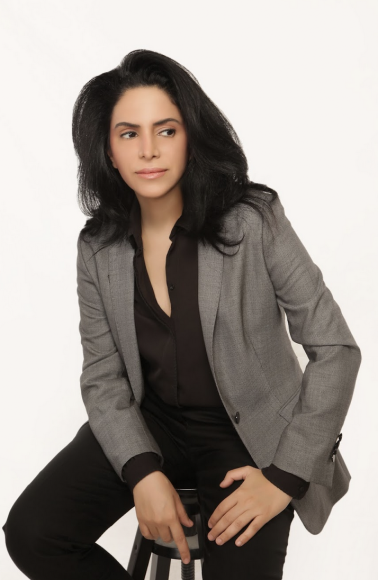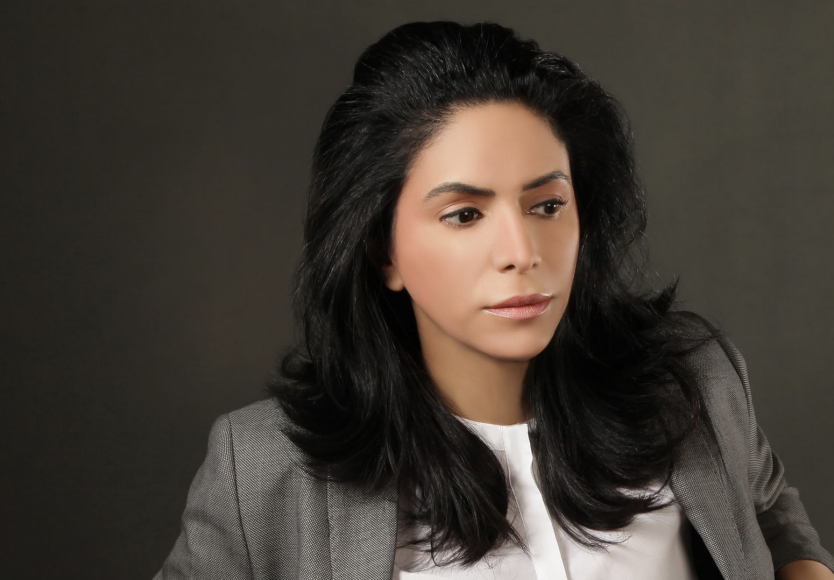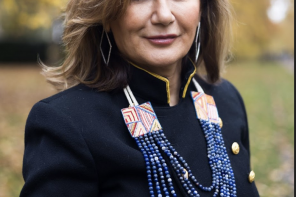Nasreen Alissa is one of a growing number of Saudi women choosing law as their career. In the recent decades, we have witnessed important progress and changes for women in Saudi Arabia and the Middle East. We were delighted to have the chance to talk to Alissa about her profession, what inspired her, and going beyond her desk job to build the “Know Your Rights” App for Saudi women.
What inspired you to be in this profession and what keeps you motivated?
In the early 90’s in Saudi Arabia, I grew up with four brothers until my sister was born. I was not allowed to get involved in activities such as soccer or basketball or learn karate, always being told “you’re a girl” or that “boys are different”. Then I started thinking and reading about justice and law. I felt it was unfair that I cannot do things because of my gender…so, I decided to be a lawyer!
Thankfully, my family and friends, who are my biggest motivation and inspiration, were very supportive. Also, I had the desire to serve my community and I wanted to pursue a career in law because I believe that law is the fundamental of life and liberty. You promote a knowledge of being able to communicate and negotiate. In the law, you don’t shy away from conflict. You confront it. As James Baldwin said, “Not everything that is faced can be changed, but nothing can be changed until it is faced.” Success also motivates me to do a good job. Knowing that my hard work and perseverance will help me achieve greater professional success.
How did it feel to be one of the first Saudi women to have founded a law firm in Saudi Arabia?
It’s an absolute honor. I’m very blessed and lucky and I hope I can inspire other women to pursue their dreams and take on risks, because taking risks allows us to discover more exceptional opportunities than we had ever imagined. I personally have taken risks and followed my dreams, and I encourage every woman to do the same.
What is your impression of the general work environment, and the status of women in law in Saudi?
The laws and regulations are changing quickly for the benefit of both genders. It’s moving towards equality and part of Vision 2030 is women empowerment. Honestly, I am amazed, blessed, and proud of the great changes in my country.
Can you describe a challenge you overcame that has made your career stronger?
For me, there were many challenges early on from starting law school. Such as people’s perspective of me going to law school. Also, there were not many women working in law firms. There was one law firm, where I was the only woman. So, I had thoughts of self-doubt, and sometimes putting myself in the ‘not smart’ bucket. However, the process made me stronger as I had to work double to prove myself. It took a lot of persistence and perseverance to keep on going.
Unfortunately, societies have this mental image of executives and leaders being male, so I had to work hard to show that not only can women be great leaders, but they already are. I am grateful for the challenges I faced; without it I wouldn’t be where I am today.
What is the most rewarding aspect of your job?
The ability to help others. Also, it’s a job that involves supporting justice in society and standing up for what is right makes people respect lawyers.
You are also the founder of “Know Your Rights” an App for Saudi women, please can you give us some information and how the concept came about?
When I moved to Saudi, I think around 2012, there were very few female lawyers. So, whenever I go to an event or a gathering and I introduce myself as a lawyer, many women come up to me asking me about their rights and asking for help. I felt I had a duty to do something. Help them out!
At the beginning I thought I should publish a book to explain to women about their rights. But then I said to myself why not make a mobile application! This way I can always update it according to new laws with no issues, unlike a book.
After that I started interviewing women about the problems they face and visiting different courts, speaking to clerks there. I then started reading Sharia laws and organizing the application content. The great thing about the App is that I can update the laws/App content and do changes within minutes with no delays or request an approval update from Apple Store or Google play.
The whole idea of the App is to help women understand the laws, so if they face issues, they know what to do, and they have options. It also helps them to be independent, because part of the App idea is about ‘you can do it yourself.’
Know Your Rights App is all about women empowerment!
Internationally speaking, what concerns you the most in women’s rights?
Many things! Abduction of girls in some counties. Violence against women and girls. Poverty. A lot of women in underdeveloped counties face discrimination and inequality. They face violence, abuse, and unequal treatment at home, at work and in their wider communities. They are denied opportunities to learn, to earn and to lead. I’m really blessed to have the benefit of living in a country that is starting to promote women’s rights and equality.
How has your life experience made you the woman you are today?
I have lived in many counties, worked at a young age and I was in school for a long time. I have 4 degrees, 2 BAs and 2 Masters. Life indeed for me was like being on a roller coaster. It’s all about experience whether it’s positive or negative. If it’s positive you build on it and if it’s negative, you learn from it. I tell myself every day when I meditate that my daily goal is to be better than I was yesterday.
What advice would you like to give our readers, especially young lawyers, and law students?
I would give a few recommendations to young lawyers and law students, as I have trained over 100 students/junior lawyers.
First: Read! Read! Read! stay updated on everything. Especially, the changes in laws and regulations
Second: Accept criticism. Drop ego!
Third: Build persistence, perseverance, and resilience
Fourth: Build on your strengths. Have a growth mindset
Fifth: Quality and efficiency in your work is crucial and the best way to get there is to always put yourself in your client’s shoes. It’s a strategy that you need to employ to succeed.
Finally, if you had one wish to change something within the legal profession, what would it be?
To provide better training programs for young law students/graduates.
Text by Suna Ahmed

